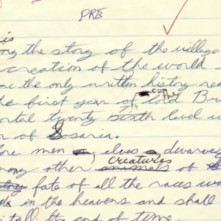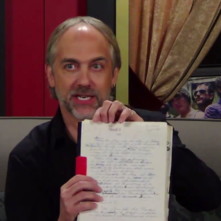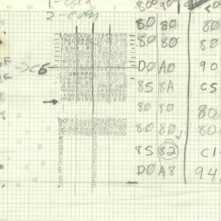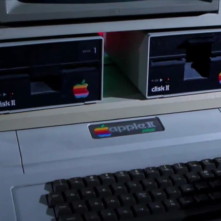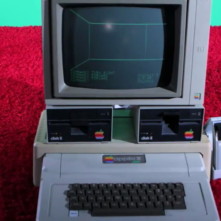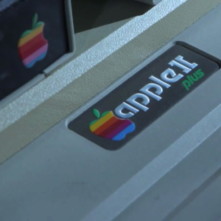Ready Player One’s Richard Garriott inspiration
| June 11th, 2018 1:01 PM by Ken Gagne | Filed under Game trail, Mainstream coverage; 1 comment. |
Ready Player One was my favorite novel of 2011, providing a dystopian cyberpunk adventure targeted at geeks who grew up immersed in 1980s pop culture. I’ve since recognized the book’s problematic elements with gatekeeping, transphobia, and fan service without substance … yet I still can’t help but be fascinated by all the elements author Ernest Cline wove into his narrative.
With Ready Player One‘s recent adaptation to film, audiences are discovering anew the Oasis, the fictional virtual world created by James Halliday (played by Sir Mark Rylance), a virtuoso computer programmer who sets himself up as the massively multiplayer online role-playing game’s benevolent (but absent) god. Many of Halliday’s (and thus Cline’s) favorite games make appearances in Ready Player One, and in this new WIRED interview, Cline details each and every game in the movie — with one in particular being of interest to Apple II users.
Turns out one of the Apple II’s own played a major role in the story:
Akalabeth is one of the first attempts by a computer programmer to translate the experience of playing Dungeons & Dragons into a computer game. It was created by Richard Garriott, who also helped serve as the inspiration for James Halliday. Richard Garriot is a famous video game designer from Austin, Texas, where I live, who has an alter-ego: his Dungeons & Dragons and game avatar called Lord British. He would dress up as Lord British in public at press events and things. He eventually ended up using his video-game money to travel into space and go on the International Space Station. He was really an inspiration to me as like a geek with unlimited funds and what could be accomplished. So he and Howard Hughes helped inspire James Halliday in my book. And his game, Akalabeth, and the games that followed it: Ultima I, II, III, IV, and then Ultima Online, the first MMO, those all helped inspire the Oasis in my novel.
While Garriott was directly referenced in the book, I didn’t pick up any mentions in the movie. Little did I know that an entire, integral character was based on Lord British himself!
(Hat tip to Hades Kong via WTF Dragon)
